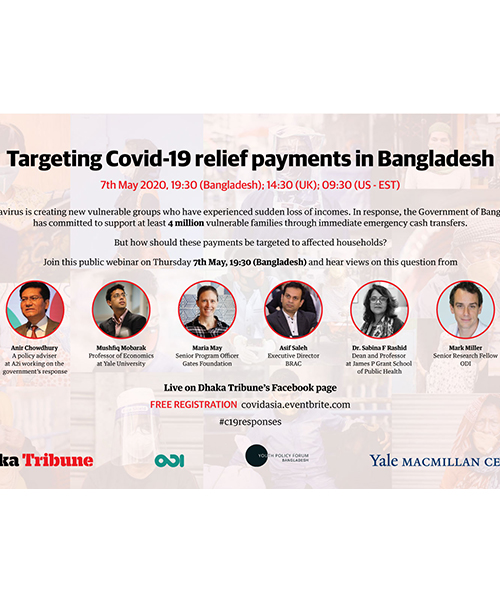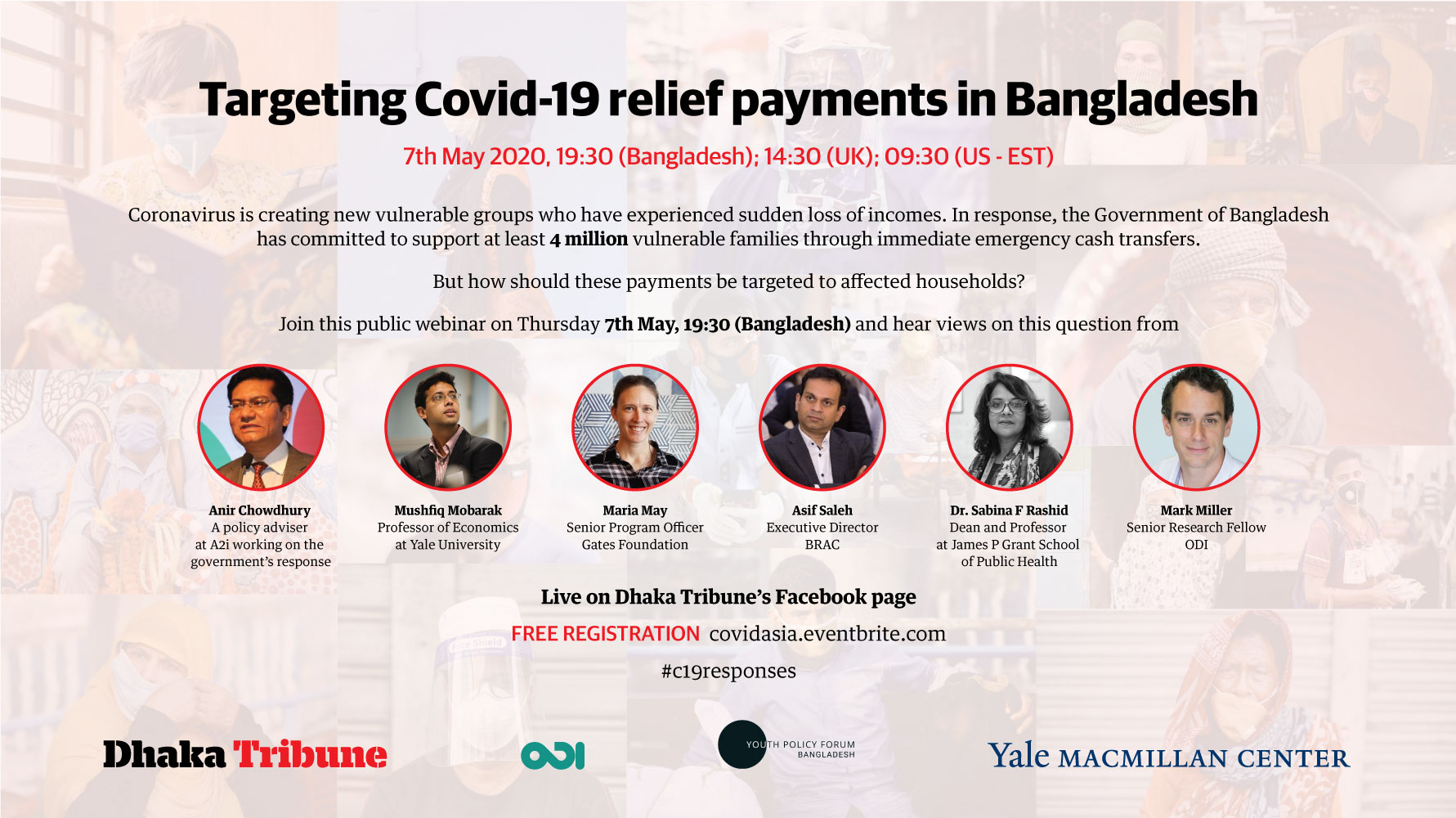
Watch the full event here.

Around the world, cash transfers are increasingly been adopted as a way to support incomes of the poorest citizens. However, the economic disruptions and social distancing policies arising from the coronavirus is creating new vulnerable groups in need of immediate cash support. This includes informal workers, day laborers, and others whose ability to get by has been challenged by the sudden loss of income. A recent survey from Bangladesh (PDF) found that 63% of low-income households reported complete loss of income once social distancing policies were implemented. In response, the government of Bangladesh has committed to support at least 4 million vulnerable families through immediate emergency cash transfers.How though can the government identify the households who need it the most? These households are not found in traditional social safety net program registries, lack no formal documents about their occupation or business, and are paid in cash, making it hard to verify them income. Ensuring that they have access to emergency cash transfers poses an enormous, urgent challenge to governments looking to support those who need it the most.
This webinar will explore:
- How should the government navigate tensions between the speed of response, equity concerns and the effectiveness of targeting?
- How might governments work with different partners (e.g. academics, civil society, telecom operators) to support more effective targeting?
- Given that Bangladesh has a relatively large gender gap in mobile phone ownership, what can the government do to avoid potential exclusion in targeting and access to cash transfers?
Panelists:
Anir Chowdhury (Policy Advisor, A2i – Government of Bangladesh)
Mushfiq Mobarak (Professor of Economics, Yale University)
Sabina Rashid (Dean and Professor at James P Grant School of Public Health)
Asif Saleh (Executive Director, BRAC)
Moderators:
Maria May (Senior Program Officer, Bill and Melinda Gates Foundation)
Mark Miller (Senior Research Fellow, ODI)

